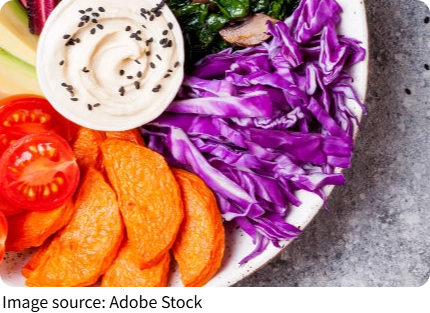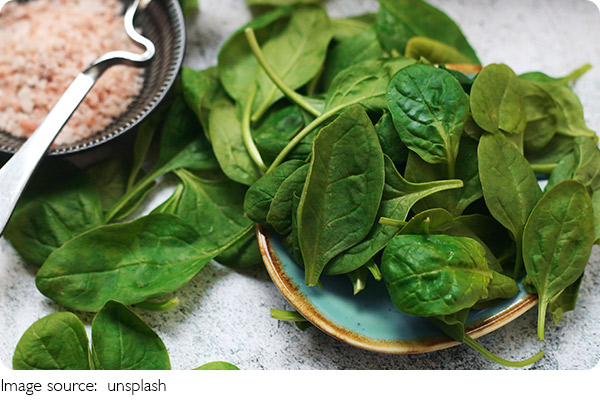Vitamins for Skin

We all desire glowing, healthy skin, and the secret to achieving this may be simpler than we think—plant-based nutrients.
Just like how we nourish our bodies with food for energy and vitality, we can also nourish our skin with the right plant-based vitamins.
These vitamins not only support skin health but also help prevent signs of aging, soothe irritation, and even reduce inflammation. So, what are the key vitamins in plants that make a difference? Let's dive into the most beneficial nutrients for healthy skin.
Vitamin C: The Glow Booster
Vitamin C is one of the most well-known vitamins for skin health, and for good reason. This powerful antioxidant helps protect our skin from free radical damage caused by UV rays, pollution, and other environmental stressors. Vitamin C also plays a crucial role in collagen production, which is essential for maintaining skin elasticity and preventing wrinkles.
Many fruits and vegetables are rich in Vitamin C, including citrus fruits, strawberries, bell peppers, and leafy greens like kale and spinach. Consuming these plant-based foods regularly can help brighten the skin and maintain a youthful appearance. In addition, topical Vitamin C serums are often used in skincare routines to enhance the skin's glow and fight hyperpigmentation.
Vitamin A: The Skin Repairer
Vitamin A is another key nutrient for maintaining healthy skin. Known for its ability to support skin cell regeneration, Vitamin A helps to keep our skin smooth, even-toned, and free from blemishes. It's essential for the production of new skin cells, which can improve the appearance of acne scars and age spots.
This vitamin is found in abundance in plant-based foods as beta-carotene, which is converted to Vitamin A in the body. Foods rich in beta-carotene include carrots, sweet potatoes, butternut squash, and dark leafy greens like spinach and collard greens. By including these foods in our diet, we can help our skin repair and rejuvenate itself from within.
Vitamin E: The Moisture Protector
Vitamin E is a fat-soluble antioxidant that helps protect the skin from oxidative stress and environmental damage. It also plays a significant role in preserving the skin's moisture, which is key to maintaining its softness and preventing dryness. Vitamin E has been shown to reduce the appearance of scars, stretch marks, and fine lines, making it an essential nutrient for maintaining smooth, hydrated skin.
Plant-based sources of Vitamin E include nuts, seeds, and oils like sunflower oil, almond oil, and avocado. These foods not only provide Vitamin E but also healthy fats, which are crucial for keeping the skin moisturized and radiant.
Vitamin K: The Bruise Healer
While Vitamin K is often overlooked, it plays an important role in skin health. This vitamin is essential for wound healing and is often used in the treatment of bruises, dark circles, and scars. Vitamin K helps improve blood circulation and speeds up the skin's healing process, which is especially beneficial for those who suffer from post-surgical bruising or discoloration.
Vitamin K is found in leafy greens such as kale, spinach, and cabbage, as well as in herbs like parsley. Incorporating these foods into your diet can help support your skin's healing processes and maintain its overall health.
Conclusion: Nourishing Skin from Within
As we can see, the vitamins found in plants are not only good for our general health but also play a crucial role in maintaining beautiful, healthy skin.
From the collagen-boosting effects of Vitamin C to the skin-repairing power of Vitamin A and the moisturizing benefits of Vitamin E, plant-based nutrients are packed with skin-loving benefits. By incorporating a variety of colorful fruits, vegetables, nuts, and seeds into our daily diet, we can nourish our skin from the inside out.

According to Dr. Arne Astrup, a specialist in nutritional physiology and bioactive compounds:
"Plant-derived nutrients are fundamental to systemic health and dermal vitality. Vitamin C—abundant in citrus, berries, and leafy greens—stimulates collagen synthesis by upregulating lysyl oxidase activity, enhancing skin elasticity and barrier integrity 13.
Concurrently, Vitamin A (retinoids/carotenoids) accelerates epidermal repair through keratinocyte differentiation and UV damage mitigation, while Vitamin E’s tocopherols fortify lipid membranes, reducing transepidermal water loss by 20–30% for sustained hydration 17. Crucially, these vitamins synergize with polyphenols like flavonoids and anthocyanins to amplify antioxidant defenses, neutralizing free radicals that drive inflammaging and collagen degradation."
So, let's make skin health a priority by choosing the right plant-based foods that are rich in these essential vitamins. Remember, the secret to glowing skin might just be in your next meal!
What's your favorite plant-based food for healthy skin? Let us know in the comments below!
-
 Grow VeggiesNo backyard? No problem—here's how your tiny balcony can feed your kitchen!
Grow VeggiesNo backyard? No problem—here's how your tiny balcony can feed your kitchen! -
 Leafy Home BeautiesTop 7 Indoor Foliage Plants That Instantly Refresh Your Living Space and Purify the Air Naturally
Leafy Home BeautiesTop 7 Indoor Foliage Plants That Instantly Refresh Your Living Space and Purify the Air Naturally -
 Herb Flavor BoostA Practical Guide to Growing Mint, Basil, Rosemary and Using Them as Fresh Kitchen Seasonings.
Herb Flavor BoostA Practical Guide to Growing Mint, Basil, Rosemary and Using Them as Fresh Kitchen Seasonings.